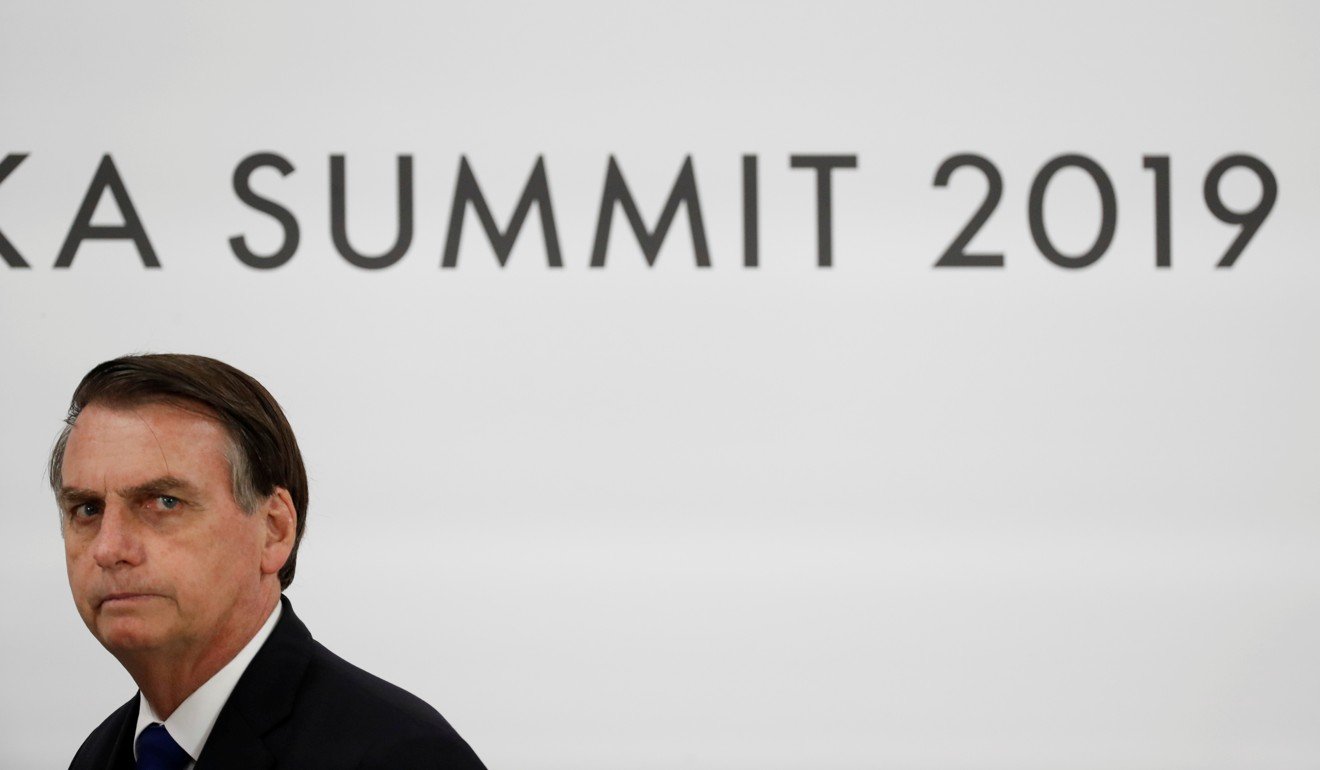
Xi Jinping’s tardiness leads Brazilian President Jair Bolsonaro to call off their G20 meeting
- The meeting was to start at 2:30pm local time, but was cancelled at 2:55pm
- Delays are common at the summit, but it is less common for a meeting to be called off entirely
Brazilian President Jair Bolsonaro called off a meeting on Saturday in Japan with Chinese counterpart Xi Jinping after his delegation was left waiting.
While delays in meetings at multilateral summits are not unusual – timetables often slip, and Russian President Vladimir Putin is famous for running behind, for example – it is less usual for a leader to call off a chat entirely.
The meeting on the sidelines of the Group of 20 Summit in Osaka was to start at 2.30pm local time. At 2.55pm, a press officer told reporters the meeting had been cancelled.
Bolsonaro’s spokesman Otavio Rego Barros said the delegation had to pack its luggage and make sure it was on time for the flight on the presidential aeroplane. “The president decided to call off this bilateral meeting,” he said. “The meeting was much delayed already, we were waiting in the bilateral meeting room.”

China is Brazil’s top trading partner, gobbling up commodities from Latin America’s largest economy. Bolsonaro prides himself on his relationship with US President Donald Trump, which may have emboldened him to likewise present himself as a hard negotiator, according to Mauricio Santoro, a political-science professor at Rio de Janeiro’s state university. Bolsonaro is due to visit China in October.
“There is a great risk of backfiring,” Santoro, who teaches a course on relations with China, said in an email. “Exports to China are concentrated in a small group of products: soy, oil, iron ore. It’s not difficult for the Chinese to create serious problems for Brazil to put political pressure on Bolsonaro.”
Trudeau raises Canadian detainees’ cases with Xi at G20
China invests heavily in Brazil, which is eager for international companies to participate in its privatisation program and deploy capital to accelerate economic growth.
While Bolsonaro spoke on the campaign trail of lessening Brazil’s economic dependence on China, some in his administration have since sought to mend fences.
“The Chinese can buy in Brazil, but they can’t buy Brazil,” the president said at a breakfast with journalists in April. Vice-President General Hamilton Mourao said in May that pragmatism was needed for the health of Brazil’s economy.

